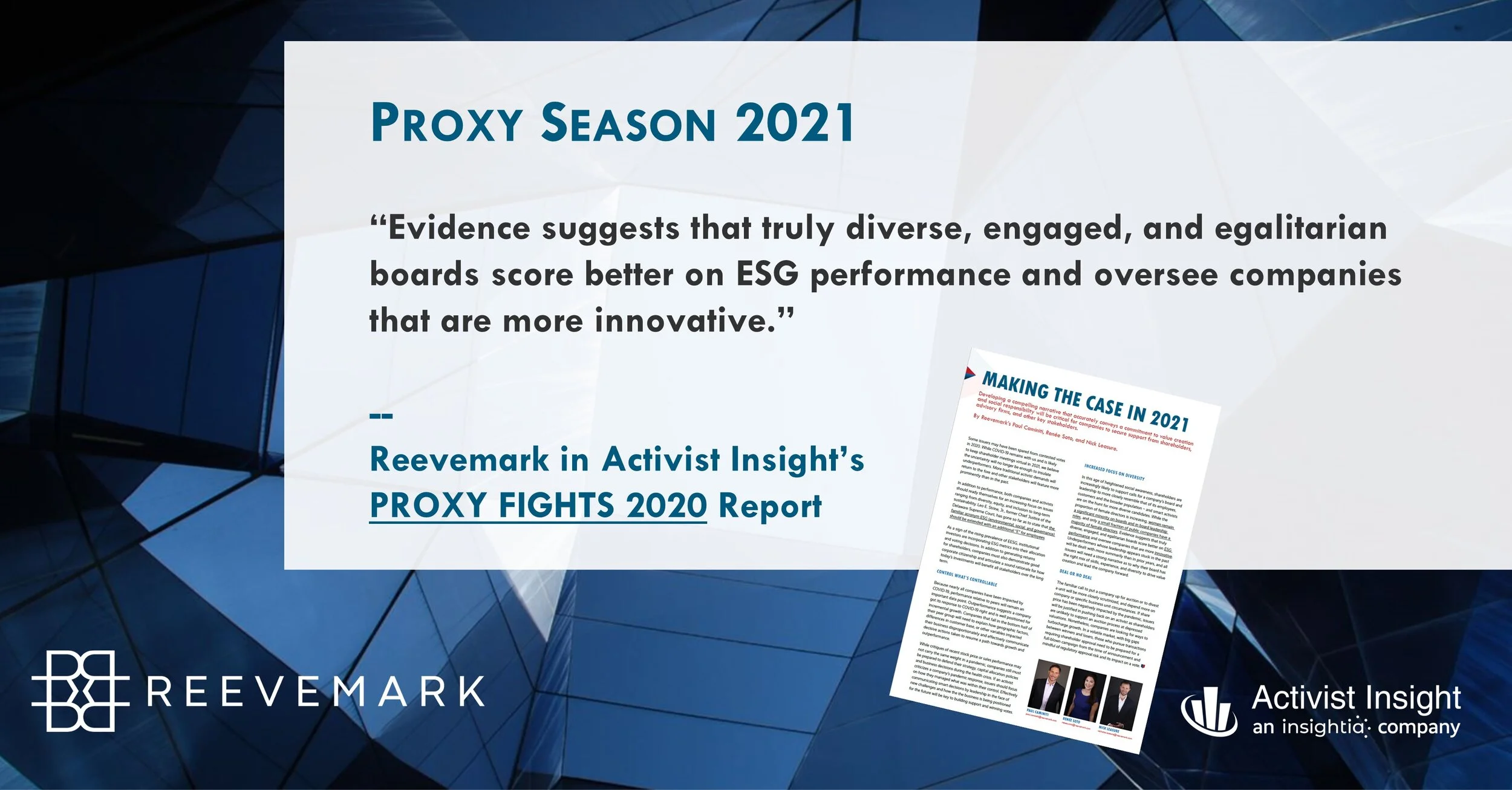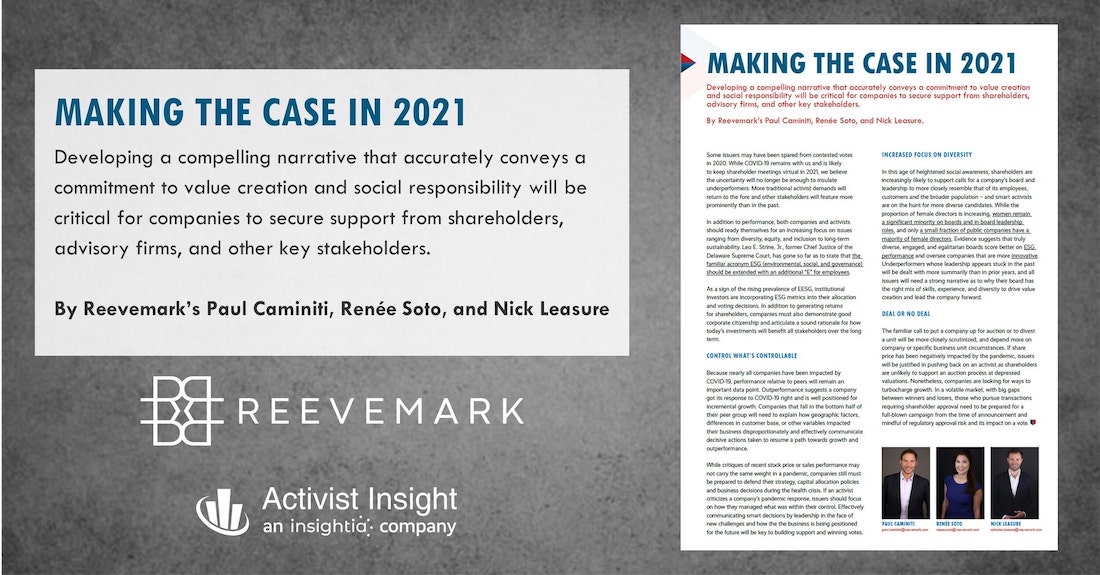Activist Insight: Making the Case in 2021

In Activist Insight’s November 2020 PROXY FIGHTS 2020 Report, Reevemark’s Paul Caminiti, Renée Soto & Nick Leasure write:
Developing a compelling narrative that accurately conveys a commitment to value creation and social responsibility will be critical for companies to secure support from shareholders, advisory firms, and other key stakeholders.

Reevemark Report in Activist Insight’s PROXY FIGHTS 2020 Report
Some issuers may have been spared from contested votes in 2020. While COVID-19 remains with us and is likely to keep shareholder meetings virtual in 2021, we believe the uncertainty will no longer be enough to insulate underperformers. More traditional activist demands will return to the fore and other stakeholders will feature more prominently than in the past.
In addition to performance, both companies and activists should ready themselves for an increasing focus on issues ranging from diversity, equity, and inclusion to long-term sustainability. Leo E. Strine, Jr., former Chief Justice of the Delaware Supreme Court, has gone so far as to state that the familiar acronym ESG (environmental, social, and governance) should be extended with an additional “E” for employees.
As a sign of the rising prevalence of EESG, institutional investors are incorporating ESG metrics into their allocation and voting decisions. In addition to generating returns for shareholders, companies must also demonstrate good corporate citizenship and articulate a sound rationale for how today’s investments will benefit all stakeholders over the long term.
Control What’s Controllable
Because nearly all companies have been impacted by COVID-19, performance relative to peers will remain an important data point. Outperformance suggests a company got its response to COVID-19 right and is well positioned for incremental growth. Companies that fall in the bottom half of their peer group will need to explain how geographic factors, differences in customer base, or other variables impacted their business disproportionately and effectively communicate decisive actions taken to resume a path towards growth and outperformance.
While critiques of recent stock price or sales performance may not carry the same weight in a pandemic, companies still must be prepared to defend their strategy, capital allocation policies and business decisions during the health crisis. If an activist criticizes a company’s pandemic response, issuers should focus on how they managed what was within their control. Effectively communicating smart decisions by leadership in the face of new challenges and how the the business is being positioned for the future will be key to building support and winning votes.

“Evidence suggests that truly diverse, engaged, and egalitarian boards score better on ESG performance and oversee companies that are more innovative.” — Reevemark
Increased Focus on Diversity
In this age of heightened social awareness, shareholders are increasingly likely to support calls for a company’s board and leadership to more closely resemble that of its employees, customers and the broader population – and smart activists are on the hunt for more diverse candidates. While the proportion of female directors is increasing, women remain a significant minority on boards and in board leadership roles, and only a small fraction of public companies have a majority of female directors.
Evidence suggests that truly diverse, engaged, and egalitarian boards score better on ESG performance and oversee companies that are more innovative. Underperformers whose leadership appears stuck in the past will be dealt with more summarily than in prior years, and all issuers will need a strong narrative as to why their board has the right mix of skills, experience, and diversity to drive value creation and lead the company forward.
Deal or No Deal

“Be prepared for a full-blown campaign from the time of announcement and mindful of regulatory approval risk and its impact on a vote.” — Reevemark
The familiar call to put a company up for auction or to divest a unit will be more closely scrutinized, and depend more on company or specific business unit circumstances. If share price has been negatively impacted by the pandemic, issuers will be justified in pushing back on an activist as shareholders are unlikely to support an auction process at depressed valuations. Nonetheless, companies are looking for ways to turbocharge growth. In a volatile market, with big gaps between winners and losers, those who pursue transactions requiring shareholder approval need to be prepared for a full-blown campaign from the time of announcement and mindful of regulatory approval risk and its impact on a vote.

Reevemark Report in Activist Insight’s PROXY FIGHTS 2020 Report. Click here for full report
Get in Touch
For more information about Reevemark or to inquire about a potential engagement, please send us an email.
Email Us